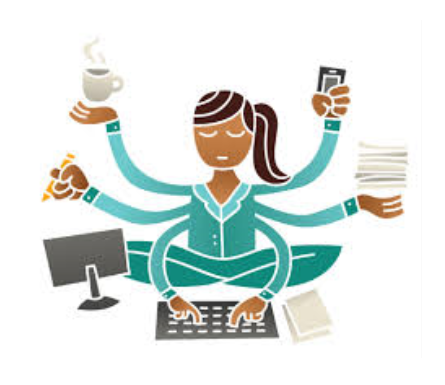Working to be Free From Distractions
by CYDNEY COFFEY, CSU Communications Graduate Assistant
Did you know that according to some research done by WARC, the average human attention span is eight seconds? Yes, eight seconds. Maybe about the time it might take you to get through this first paragraph or first few sentences. You also might have heard that a goldfish’s attention span is nine seconds long, one more second than that of the average human. Is this true, I am not sure. It could be a myth, or it could be factual. “Just because one might believe that we have a shorter attention span than some sort of fish doesn’t mean that we’re not able to hold attention” (Jonathan Schwabish). I mean, Netflix, Hulu, and Disney+ binging is a thing, right? To that point, I will make sure to keep my article short, sweet, and simple.
This upcoming week we are going to explore your insight and awareness as we discuss how to learn from distractions. Distractions are things that tend to take your attention away from what you are supposed to be doing in the present moment. Distractions can be internal or external. External distractions could be something as simple as a noise, whereas an internal distraction could be fatigue or stress. Most of the time we think of distractions as something that can be negative, but there is such a thing called positive distractions. Positive distractions tend to elicit positive feelings and hold your attention without stressing you out in any way, but we will not get too much into positive distractions in this blog.
“You can’t do big things if you’re distracted by small things”
unknown
One of the benefits of meditation is cultivating a mind that is relatively free from distraction. That can be hard with distractions everywhere. Individuals can be distracted by their TV, their cell phone, the internet, the clutter around them, social media, people watching- the list goes on! In today’s society, there is a culture of multi-tasking, which is extremely hard to do because there is no such thing as multi-tasking. Many studies and research have shown that the human brain is incapable of focusing on two things at once. So, when you think you can listen to your professor on zoom during class while you are scrolling through social media, your brain is only absorbing what you are looking at on social media, and your professor teaching is simply background noise.
“Focus comes from eliminating distractions”
Unknown
The best and most reliable way to reduce our distractions is to understand them. The next time you are engaged in a task that requires you to focus (aside from binging a good TV show) and you realize that your mind has wandered away, notice what it was that pulled your attention away. There are likely to be some regular patterns that emerge. Pinpoint those distractions and when you know what they are, you will be better equipped to guard yourself against them. Being free from distractions might allow you to do your best work or allow your body to heal or allow your heart to engage, increase your joy or allow your mind to focus. As I mentioned earlier, distractions will always be there, but when you take a moment to notice them and understand them, you will be better prepared to deal with them.

